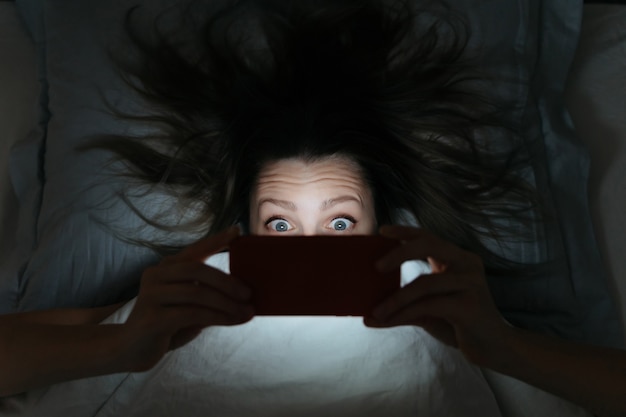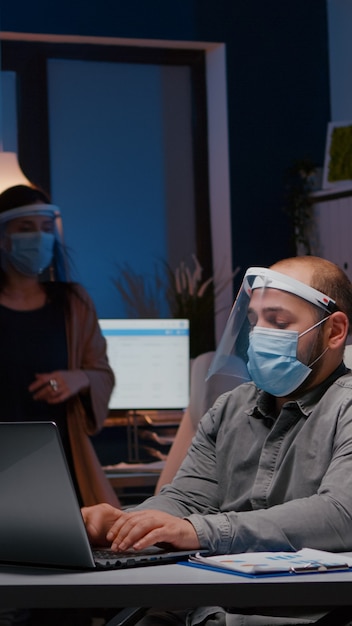Can a 15% Screen Time Cut Boost Your Sleep? A 2025 Deep Dive

Can a 15% Reduction in Screen Time Improve Your Sleep Quality? A 2025 Study explores the potential link between reduced screen usage and enhanced sleep, offering insights into how digital habits may affect sleep patterns.
Imagine unwinding into a deeper, more restful sleep simply by tweaking your screen time habits. Can a 15% Reduction in Screen Time Improve Your Sleep Quality? A 2025 Study aims to unravel just that, offering a glimpse into how small changes in our digital lives could lead to significant improvements in our sleep.
Understanding the 2025 Landscape of Screen Time and Sleep
In 2025, screens dominate our lives more than ever, from smartphones and tablets to laptops and TVs, influencing how we work, socialize, and relax. This omnipresence raises critical questions about the impact of screen time on sleep quality. Understanding this landscape is the first step in addressing any potential negative effects.
The Prevalence of Digital Devices in Daily Life
Digital devices have become seamlessly integrated into nearly every aspect of our daily lives. We use them for work, communication, entertainment, and even to manage our health. This constant connectivity, while offering numerous benefits, also presents a challenge to our sleep patterns.
The Growing Concern About Sleep Deprivation
Sleep deprivation has become a widespread concern, with studies indicating a significant portion of the population experiencing chronic sleep issues. The factors contributing to this problem are varied, but excessive screen time is increasingly recognized as a major culprit.
Here are some devices that are widely being used in the healthcare industry:
- Smartphones: For communication, scheduling, and accessing health information.
- Tablets: For data entry, patient monitoring, and educational purposes.
- Laptops: For administrative tasks, data analysis, and telemedicine consultations.
Understanding the interconnectedness between our digital lifestyles and sleep quality is crucial. As we continue to rely on screens in 2025, it’s essential to explore ways to mitigate their negative impact on our sleep.

The Science Behind Screen Time’s Impact on Sleep
The impact of screen time on sleep is a complex issue rooted in the biological effects of light and cognitive stimulation. Understanding these underlying mechanisms can help us grasp how our digital habits can disrupt our sleep cycles.
Blue Light Emission and Melatonin Suppression
One of the primary ways screen time affects sleep is through the emission of blue light. This type of light, prevalent in digital screens, has been shown to suppress the production of melatonin, a hormone crucial for regulating sleep.
Cognitive Stimulation and Mental Arousal
Beyond blue light, the content we consume on screens can also contribute to sleep disturbances. Engaging with stimulating content, such as social media, news, or games, can lead to mental arousal, making it harder to unwind and fall asleep.
Key scientific findings regarding the impact of screen time on sleep include:
- Reduced Sleep Duration: Studies have consistently shown a correlation between increased screen time and shorter sleep durations.
- Delayed Sleep Onset: Exposure to screens before bed can delay the onset of sleep, leading to later bedtimes and less overall sleep.
- Fragmented Sleep: Screen time can also contribute to fragmented sleep, with individuals experiencing more frequent awakenings during the night.
The scientific evidence is clear: screen time can have a significant impact on sleep quality. By understanding the mechanisms through which screens interfere with our sleep cycles, we can take steps to mitigate these effects.
Designing the 2025 Study: Methodology and Participants
To determine whether a 15% reduction in screen time can improve sleep quality, a well-designed study is essential. The methodology and participant selection process are fundamental to ensuring accurate and reliable results.

Participant Selection and Demographics
The study should include a diverse group of participants, representing a range of ages, genders, and socioeconomic backgrounds. This diversity will help ensure that the findings are generalizable to a broader population.
Data Collection Methods and Metrics
Objective and subjective data collection methods will be used to assess sleep quality. Objective measures, such as actigraphy and polysomnography, will provide data on sleep duration, sleep onset latency, and sleep fragmentation. Subjective measures, such as sleep diaries and questionnaires, will capture participants’ perceptions of their sleep quality.
Ethical Considerations and Informed Consent
Ethical considerations are paramount in any research study. Participants will be fully informed about the purpose of the study, the procedures involved, and any potential risks or benefits. Informed consent will be obtained from all participants before they are enrolled in the study.
The study’s methodology will include:
- Baseline Assessment: Participants will undergo a baseline assessment to determine their current screen time habits and sleep quality.
- Intervention Period: Participants will be randomly assigned to either an intervention group, which will reduce their screen time by 15%, or a control group, which will maintain their usual screen time habits.
- Follow-Up Assessment: After the intervention period, participants will undergo a follow-up assessment to determine the impact of the screen time reduction on their sleep quality.
By carefully designing the study methodology and participant selection process, researchers can obtain valuable insights into the relationship between screen time and sleep quality.
Expected Outcomes: What the 2025 Study Could Reveal
The 2025 study on the impact of a 15% screen time reduction on sleep quality has the potential to reveal important insights into the connection between our digital habits and our rest.
Improvements in Sleep Duration and Efficiency
One of the primary outcomes expected from the study is an improvement in sleep duration. Reducing screen time, particularly before bed, could lead to participants falling asleep faster and staying asleep longer, resulting in a longer total sleep time.
Enhanced Subjective Sleep Quality
Besides objective measures, the study is likely to reveal improvements in subjective sleep quality. Participants who reduce their screen time may report feeling more rested and refreshed upon waking, indicating a better overall sleep experience.
Potential Benefits for Mental Well-Being
Beyond sleep, the study could also uncover potential benefits for mental well-being. Improved sleep quality has been linked to reduced symptoms of anxiety and depression, enhanced mood, and increased cognitive function. A 15% reduction in screen time could contribute to these positive mental health outcomes.
Long Term Impact
The study could also lead to long term benefits. Participants might develop better habits that lead to sustained periods of restful sleep and improved mental clarity.
Based on existing research, the 2025 study is expected to demonstrate:
- A statistically significant improvement in sleep duration for the intervention group compared to the control group.
- A higher percentage of participants in the intervention group reporting improved sleep quality compared to the control group.
- A correlation between reduced screen time and decreased symptoms of anxiety and depression.
These potential findings highlight the importance of understanding and managing our screen time habits. By shedding light on the benefits of reducing screen exposure, the 2025 study could encourage individuals to make healthier choices regarding their digital device use.
Practical Tips for Achieving a 15% Screen Time Reduction
Reducing screen time by 15% may seem daunting, but with some practical strategies and mindful adjustments, it can be an achievable goal. These tips can help you take control of your screen habits and prioritize your sleep.
Setting Daily Screen Time Limits
One of the most effective ways to reduce screen time is to set daily limits on your devices. Most smartphones and tablets offer built-in features that allow you to track your usage and set boundaries for specific apps or overall screen time.
Creating a Tech-Free Evening Routine
Establishing a tech-free evening routine can significantly improve your sleep quality. Aim to put away your devices at least one to two hours before bedtime, allowing your mind to unwind and prepare for sleep.
Other screen time reduction techniques include:
- Using Blue Light Filters: Activate blue light filters on your devices to reduce the emission of sleep-disrupting blue light.
- Finding Alternative Activities: Engage in activities that don’t involve screens, such as reading, listening to music, or spending time with loved ones.
- Scheduling Screen-Free Days: Designate one day a week or month as a screen-free day to disconnect from technology and reconnect with yourself and your surroundings.
Take advantage of all tools available to you.
The Broader Implications: Digital Health in 2025 and Beyond
The 2025 study on screen time and sleep has broader implications for digital health. As our lives continue to be intertwined with technology, understanding and managing our digital habits becomes increasingly important for maintaining our well-being.
Promoting Digital Well-Being and Balance
Digital well-being is about finding a healthy balance between our digital and offline lives. This involves being mindful of our technology use, setting boundaries, and prioritizing activities that support our mental, physical, and emotional health.
The Role of Technology in Sleep Interventions
Paradoxically, technology can also play a role in sleep interventions. Sleep tracking apps, wearable devices, and online resources can provide valuable insights into our sleep patterns and offer personalized recommendations for improving sleep quality.
The Importance of Public Awareness and Education
Raising public awareness about the impact of screen time on sleep and overall well-being is crucial. Educational initiatives can help individuals make informed choices about their technology use and adopt healthier digital habits.
Future directions in digital health include:
- Developing personalized sleep interventions based on individual screen time habits and sleep patterns.
- Creating technology-based tools that promote digital well-being and balance.
- Implementing public health campaigns that educate the public about the risks of excessive screen time and the benefits of healthy digital habits.
The future of digital health depends on our ability to harness technology’s potential while mitigating its negative impacts. By promoting digital well-being, we can ensure that technology serves as a tool for enhancing our lives rather than detracting from our health.
| Key Aspect | Brief Description |
|---|---|
| 💡 Study Purpose | To investigate if a 15% cut in screen time improves sleep. |
| 📱 Screen Time Impact | Exposure to blue light and mental stimulation can disrupt sleep patterns. |
| 😴 Expected Outcomes | Improved sleep duration, quality, and mental well-being from screen reduction. |
| 🌱 Practical Tips | Set screen time limits, establish tech-free routines, and use blue light filters. |
Frequently Asked Questions
▼
Blue light emitted from screens can suppress melatonin production, affecting the sleep cycle. This disruption prevents the feeling of tiredness when one should be resting.
▼
Excessive screen time varies per person, usually, more than 2-3 hours daily beyond work/school is excessive. Pay attention to related insomnia and agitation for signs of a problem.
▼
Yes, sleep apps can track and manage screen time. Setting daily screen limits and bedtime reminders are crucial for improving sleep even with screen usage.
▼
Try non-screen activities before bed, such as reading a physical book or practicing meditation to unwind from the day and relax the body.
▼
Stop using screens at least one to two hours before bed. This helps the brain produce melatonin, which ensures a night of quality rest so that you feel refreshed.
Conclusion
The 2025 study suggests that even a small reduction in screen time could substantially improve sleep quality. As technology continues to evolve, being mindful of its impact on our well-being remains crucial. By adopting these practical tips, you can pave the way for healthier sleep habits and a better quality of life.